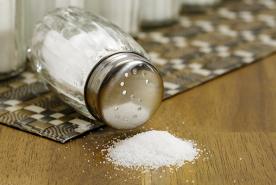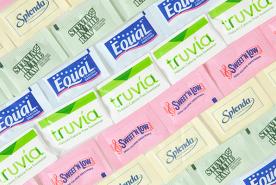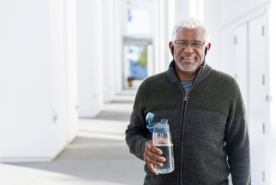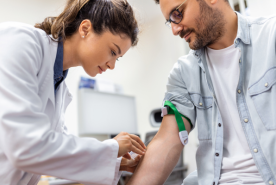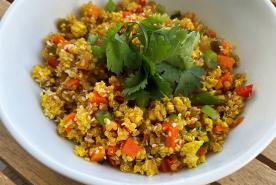Good nutrition is the key to good mental and physical health. Eating a balanced diet is an important part of good health for everyone. The kind and amount of food you eat affects the way you feel and how your body works.
How can I eat a healthy diet?
Follow the Food Guide at www.choosemyplate.gov/food-groups/ which:
- Offers a guide to healthy food choices for people from age two and up
- Helps you choose a healthful diet to maintain or improve your weight
- Includes five food groups with many kinds of foods that promote good health
- Includes the recommended number of servings and serving size of each food group
How can I make healthy choices when shopping for food?
Read the Nutrition Facts Food Label, which is found on canned, frozen, and packaged foods. This label:
- Lists the items that by law need to be listed on food products.
- Shows what a serving size of a food is, and how many calories and fat grams are in a serving, as well as how many calories of the food come from fat.
- Tells some important vitamins and minerals that the food provides.
Do I need a vitamin and mineral supplement?
- Vitamins are present in different amounts in different foods.
- Minerals help your body carry out certain activities and are also present in many foods.
- Usually all the vitamins and minerals you need are in a well-balanced diet.
- Vitamin or mineral supplements may be needed if your diet does not have a variety of foods from each group.
Are herbal supplements safe?
Not always. Herbal supplements:
- Come from natural sources like plant leaves, roots, seeds, flowers or fruits.
- Are not regulated, so there is no guarantee they contain what the package says.
- Can be purchased without a prescription.
- May cause allergic reactions, may make the medicines you take less effective or may cause other harmful effects.
- Are not always tested, so there is no guarantee they can actually do what is advertised.
Check with your doctor or dietitian before taking any herbal supplement to be sure it is safe.
Why is physical activity important?
Combined with a healthy diet, regular physical activity can improve your overall health by helping you to:
- Maintain a healthy weight
- It is recommended that you do 150 to 300 minutes of movement every week, but you may break that up into 10-minute sessions at a time.
- Exercise can be fun! Exercise happens when you schedule it into your daily routine.
- Lose excess weight and keep it off
- Prevent diseases like type 2 diabetes, cancer, heart disease, high blood pressure and chronic kidney disease
- Prevent high cholesterol.
- Build strength and endurance.
- Cope with stress and anxiety.
What if I have more questions?
- Speak to your doctor or dietitian.
The information shared on our websites is information developed solely from internal experts on the subject matter, including medical advisory boards, who have developed guidelines for our patient content. This material does not constitute medical advice. It is intended for informational purposes only. No one associated with the National Kidney Foundation will answer medical questions via e-mail. Please consult a physician for specific treatment recommendations.
